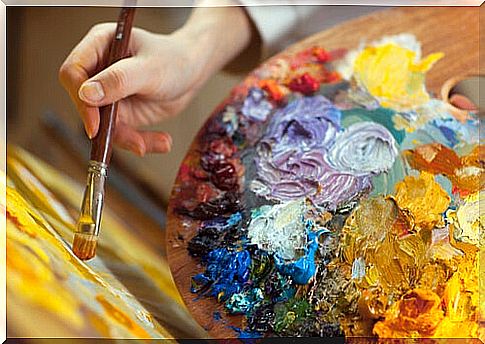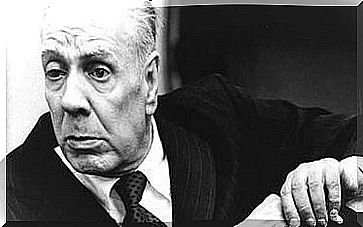The Best Exercises And Activities To Regulate Your Emotions
Emotions are a fundamental part of the development of human experiences. They are the way we express ourselves and sometimes they are even more important than words. Properly regulating your emotions is therefore necessary.
If words aren’t said with the right emotions, people probably won’t believe them. When we express something with emotion, we generally use facial expressions, images, metaphors and a certain tone.
They help us understand and express much more than words alone, but only when the emotions align with the wording. That’s one reason it’s so important to work on your emotions.
We have had the biological design that commands our emotional spectrum for more than 50,000 generations. It even contributed to our survival as a species.
Each of us is programmed with automatic reactions, or biological predispositions to action. But the things we experience in our lives act as models for our response to emotional stimuli. And that’s why we need to work on achieving emotional balance.
If we take a moment to consider how important emotions are, we will soon see the impact they have on our lives. And often without us realizing it.
It is important to recognize how our mood affects our behavior. And to know what our skills and weaknesses are. We may be surprised at how little we actually know about ourselves.
Do our emotions rule us?
When we are emotionally intelligent individuals, we allow ourselves to be influenced by things, but not controlled. Emotional self-control allows us to process our feelings and emotions in such a way that they are not decisive for us.
There is nothing crazy about getting mad at your partner, friends, family or colleagues. But if we become slaves to our emotions, we will constantly act irresponsibly or impulsively.
And we may regret this later. If we don’t know where our emotions come from or why we experience them, it can be very confusing.
Some people say that nothing makes us as human as emotions. Very human and very dependent. When we are overwhelmed by a powerful feeling, it can take over our whole mind.
If that feeling is undesirable, there’s only one quick way to get it out of our heads. With a different emotion, a stronger emotion, incompatible with that emotion we are trying to replace.
Controlling our emotions isn’t exactly a rational victory or burden. Nor does it consist of repression or our mastery of the emotions themselves.
It does consist of uniting our emotions with our ratio. That is, a balance between different mental processes.
Highly emotionally intelligent people know that processing and working on their emotions does not mean suppressing them. But they also know that when we are with other people, we have to be mindful of how others might interpret what we are expressing. Balance is crucial to our interactions.
So to keep our emotions from controlling us, we need to understand that people’s needs go beyond just physical needs, such as food or water. We also have emotional needs.
Looking at this aspect of our own psychology will help us improve the ‘diagnoses’ we make of possible emotional conflicts.
That’s why highly emotionally intelligent people tend to reflect on what they’re feeling. They are also often consistent in the conclusions they draw from that reflection.
Using art to process your emotions
The arts, like any non-verbal expression, encourage the exploration, expression and communication of the things we are not aware of. Processing our emotions through art therapy improves the quality of human relationships because it focuses on the emotional factor.
This factor is essential for every human being. It helps us to be more aware of our dark aspects and in this way the development of a person becomes easier.
It is impossible for us to be rationally or linearly aware of all the activities or information around us. For example, when we are driving, our attention is largely focused on the central task of looking ahead and driving the car.
But at the same time, we also unconsciously listen to the sound of the engine, shift gears and think about the past and the future.
To simplify conscious thought, there are three basic creative mechanisms for organizing information and experiences.
These are: filtering, generalizing and distorting. These mechanisms reduce information by prioritizing, excluding and making decisions. It is the foundation of any learning process.
The mechanisms that organize information are the basis for understanding where our emotions come from. If we only filter out the negative information from what happens to us, these mechanisms will most likely make us feel anxious…
On the other hand, if we filter a little more finely and make less generalizations in the personal sphere, it would be easier for us to feel healthy emotions. Just as much negative as positive.

We give space to non-verbal communication through art. Art can help us express and communicate feelings. It makes it easier to reflect, communicate and possibly change behaviour.
Art therapy uses art as a therapeutic outlet for improving mental illness. Especially those ailments related to anxiety. Art can be a wonderful outlet to channel this.
But on top of the therapeutic impact that art therapy may have, it is also a technique for personal growth. It helps us with self-knowledge and emotional expression.
So it is not only relevant for someone with a mental disorder. You just need to feel the need to get to know yourself better through art and start processing your emotions.
Art therapy trains and empowers us by enabling us to:
- Expressing feelings that are difficult to discuss, thus providing an outlet for communication
- Express ourselves more accessible
- Increase our self-confidence
How do we improve our emotional intelligence?
The idea of emotional intelligence gives us a glimpse of how it can be trained through routine. If emotional intelligence is our ability to successfully process and deal with our emotions, and we vary the ways in which they manifest, it will be a good development.
Unlike our IQ, which remains roughly the same throughout our lives, we can grow our emotional intelligence over time. We can and should learn how to develop our emotional intelligence through the techniques offered by psychology.
Going through your emotions is not an easy task. But even though it is difficult, it is not impossible. To improve our emotional intelligence and to move through our emotions, we must be willing to experience all kinds of emotions.
Don’t suppress any emotion. If we ignore or suppress our feelings, we will ignore important information, which has a huge effect on the way we think and behave.
Techniques for developing and improving your emotional intelligence:
- Observing our emotional responses throughout the day. It’s easy to put off the feelings we experience on a daily basis. But taking the time to acknowledge how things make you feel is essential for emotional intelligence
- Pay attention to your body. Instead of ignoring the physical manifestations of your emotions, you need to start listening to them. Our mind and body are not separate entities. They are very related to each other. You can increase your emotional intelligence by learning to interpret the signals your body is giving you about your emotions
- Don’t judge your own emotions. Each of our emotions is valid, even the negative ones. If we judge our own emotions, we will hinder our ability to feel things fully. That will only make it harder to take advantage of our emotions in a positive way. All our emotions are a new piece of useful information. Without this we would have no idea how to respond properly

- Being open goes hand-in-hand with emotional intelligence. A closed mind can be an indicator of low emotional intelligence. When we are open-minded through an inner understanding and reflection, it is easier to see conflict in a calm, confident way
- Observing the effect you have on other people. To increase your emotional intelligence, understanding other people’s emotions is half the battle. We also need to see the effect we have on other people
- Reducing stress levels by increasing our emotional intelligence. Stress is a broad term that refers to the uneasiness we feel as a result of a wide variety of emotions. Stress triggers a myriad of things and can turn a minor problem into a major one. If we are really stressed, it will be harder for us to behave the way we want to
- Empathy. Being a more active listener and paying attention to what other people are saying will help us understand their feelings. When we are able to use that information to make choices and to improve our relationships, we have healthy emotional intelligence
Emotional intelligence means more than just controlling and processing our feelings. It also implies the ability to control ourselves.
Antunes, C. (2004). Juegos para estimular las inteligencias múltiples (Vol. 5). Narcea Ediciones.
Arteterapia, AP, & para la Social Inclusion, EA (2016). Ser, narrar, imaginar. Experiencias Arteterapéuticas en intervención con menores y aportaciones desde la mirada interdisciplinar. Arteterapia , 11 , 221-222.
Bassols, M. (2006). La arteterapia, un acompañamiento en la creation y la transformación. arteterapia. Papeles de arteterapia y educación artística para la inclusión social , 1 , 19-25.
Duncan, N. (2007). Trabajar con las Emociones en Arteterapia/Art Therapy and emotions. Arteterapia , 2 , 39-49.
Fernandez, ER (2007). Aplicaciones del Arteterapia en aula como medio de prevención para el desarrollo de la autoestima y el fomento de las relaciones socials positivas:” Me siento vivo y convivo”/” Art Therapy applications in the classroom as a preventive measure using artistic manifestations for the self esteem development and the fostering of positive social relationships:” I FEEL ALIVE AND CO LIVE”. Arteterapia , 2 , 275-291.
Gardner, H. (1998). Frames of Mind: The Theory of Multiple Intelligences . Fontana Press
Goleman, D. (1995). Emotional Intelligence: Why It Can Matter More Than IQ Bantam Books.
Greenberg, L. (2000). Emociones: una guia interna. Ed. Desclee de Brouwer .









